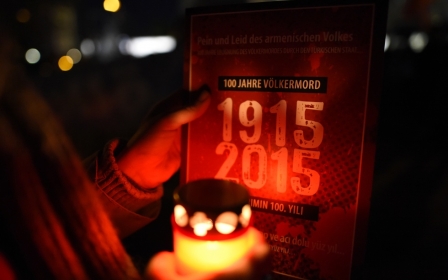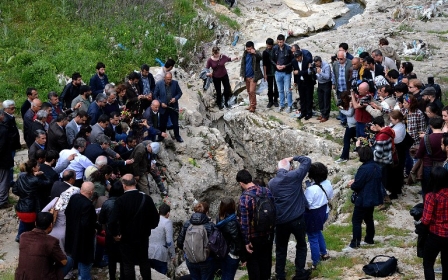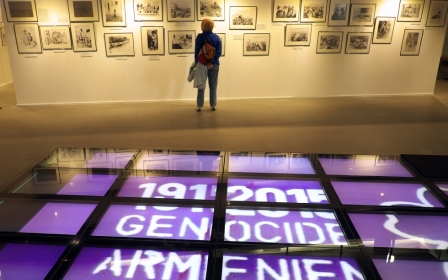EU court rules in favour of Turkish politician over Armenian genocide denial

The European Court of Human Rights (ECHR) has ruled in favour of a Turkish politician convicted in a Swiss court for denying the 1915 Armenian Genocide.
Dogu Perincek, leader of the small left-wing nationalist Patriotic Party in Turkey, was convicted of genocide denial by a Swiss district court in 2007, after he referred to the Armenian Genocide as a “great international lie” at a rally in Lausanne in 2005.
However, after years of intense legal battles, the ECHR ruled on Thursday that the Swiss court had violated Perincek’s rights to free expression.
"The Swiss courts appeared to have censured Mr Perincek simply for voicing an opinion that diverged from the established ones in Switzerland, and the interference with his right to freedom of expression had taken the serious form of a criminal conviction," the court said.
Following the announcement, Perincek tweeted that the ruling had been a victory for Turkish “independence.”
"This is not a historical debate or legal dispute. This is a defence of the country. A fight for independence!" he tweeted.
Perincek and the Patriotic Party, previously a Maoist organisation, have long argued that the 1915 Armenian Genocide - in which as many as 1.5 million Armenian were thought to have been killed by Turkish forces - was a conspiracy created by the US, Armenia and the EU as a form of “imperialist aggression” aimed at undermining Turkish sovereignty.
“Patriotic Party struggles against all kinds of imperialist aggression toward Turkey,” said the party on their website.
“The US-led imperialist forces are increasing the campaign against Turkey regarding the so-called Armenian genocide allegations in the last decade. The US and the EU have been adopting resolutions in their parliaments which accuse Turkey and even consider the Turkish War of Independence as a crime against humanity.”
In 2013, the ECHR ruled in favour of Perincek, but Switzerland appealed the verdict, with Armenia requesting to join the lawsuit as a co-plaintiff.
Amal Alamuddin Clooney, representing Armenia, claimed that the ECHR ruling had not taken into account documents from 1915 and warned that the ruling “cast doubt on the reality of genocide".
However, Thursday’s ruling stated that Perincek’s comments could not be regarded as affecting the dignity of Armenians to the point of needing the response of Swiss criminal law.
Twenty eight countries recognise the events that took place during the dying days of the Ottoman Empire as a genocide.
The governments of Azerbaijan and Turkey have both denied the killings as genocide, however, while acknowledging a large number of Armenian deaths took place during the First World War.
Controversy erupted in April as Turkey held its 100-year commemorations of the Battle of Gallipoli on the same day as Armenia commemorated the 100-year anniversary of the genocide.
Armenian President Serzh Sargsyan claimed that Turkey had moved the commemorations to intentionally clash with the other anniversary.
"What purpose is served here if not to divert world attention from the activities marking the centennial of the Armenian genocide? Turkey has a much more important responsibility towards their people and all mankind: recognition and condemnation of the Armenian genocide,” wrote Sargsyan on his Facebook page.
New MEE newsletter: Jerusalem Dispatch
Sign up to get the latest insights and analysis on Israel-Palestine, alongside Turkey Unpacked and other MEE newsletters
Middle East Eye delivers independent and unrivalled coverage and analysis of the Middle East, North Africa and beyond. To learn more about republishing this content and the associated fees, please fill out this form. More about MEE can be found here.




